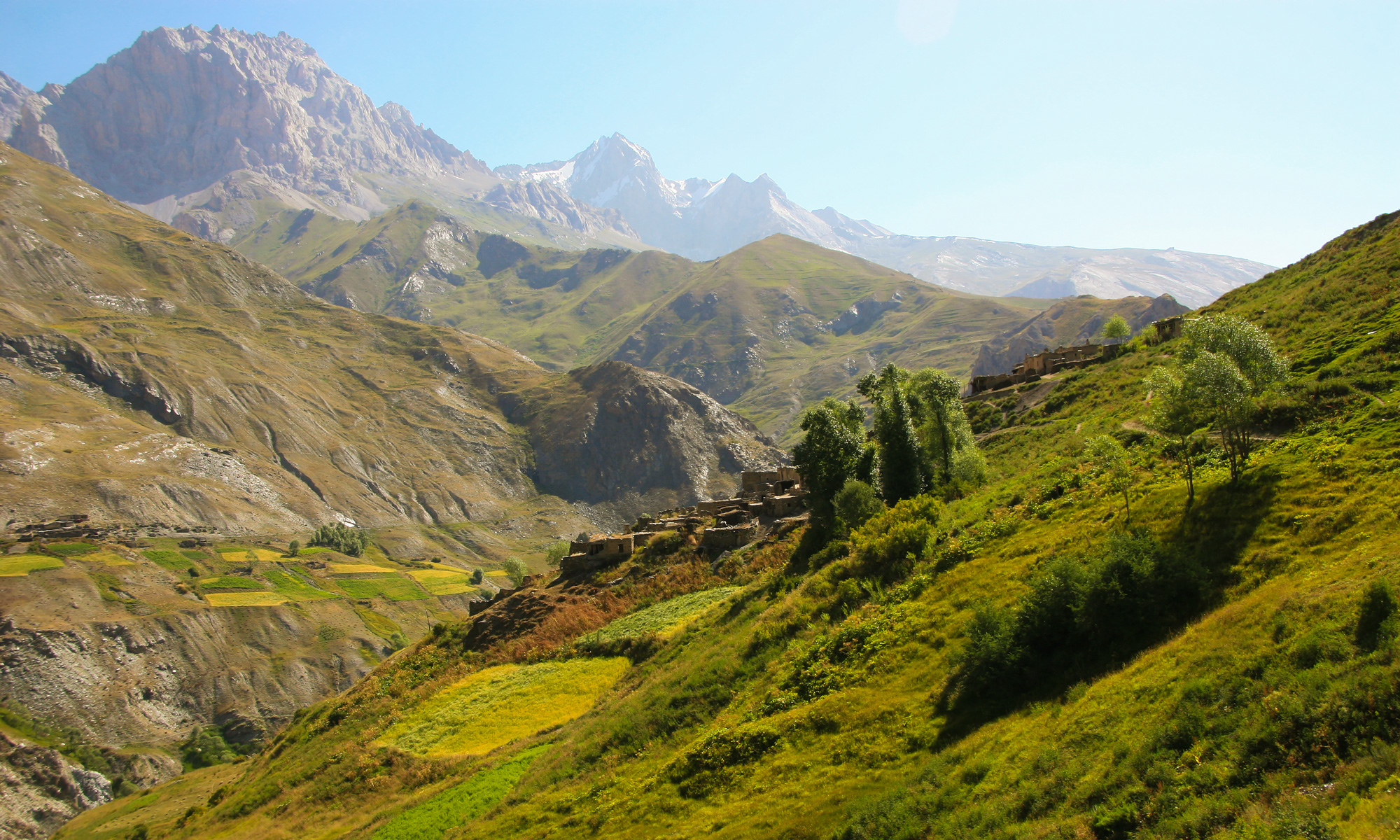In the Yaghnob Valley, where clouds gather behind ridgelines like silent messengers, weather is not just seen—it is read. Interpreted. Remembered. Recited.
In a place where a flash flood can erase a hamlet, and a cold wind can steal a lamb, proverbs about weather carry more than poetry. They carry survival.
These phrases—some clipped, others melodic—are fragments of an oral meteorology, passed down by mothers and herdsmen, not meteorologists. When a shepherd quotes a storm, it is not metaphor. It is warning in verse.
From the Khromov collections and regional lexicons, we encounter phrases that anchor daily rhythms to shifts in the sky:
Абр пушти кӯҳ рафт, хатар меояд.
“The cloud has gone behind the mountain, danger is coming.”
Here, a cloud slipping behind a peak isn’t idle scenery. It signals instability. It reflects generations of watching how storms arrive from the west—fast, unannounced, and often unforgiving.
Another widely known line:
Агар абр сурх аст, бод қаҳр мекунад.
“If the cloud is red, the wind will be furious.”
This isn’t literary language—it’s observational science. A red hue at dusk reflects refraction through low pressure zones, a consistent indicator of incoming windstorms.
In Yaghnobi, weather speaks, and people respond.
The Yaghnobi language holds a striking range of words for weather phenomena, each rich with meaning:
-
чаппаз (chappaz) – whirlwind
-
села (sela) – flood
-
барфчар (barfchar) – snow squall
-
бодтӯфан (bodtūfan) – storm wind
Some are near-onomatopoeic, echoing the sounds they name—the whistle of wind along stone ridges, or snow smacking slate roofs. These words aren’t limited to forecasts. They appear in folklore, lullabies, and memory fragments, even influencing nicknames. A child born during a thunderstorm might forever be known by the storm’s name.
One short folk tale describes a woman lost in fog so thick it “closed her name”—
номаш пӯшида шуд
(“her name was hidden”).
She was found only after the storm lifted. In this way, weather becomes both backdrop and actor. It defines presence and absence, a common theme in Yaghnobi storytelling.
A well-known proverb, recorded in several dialects, warns:
Бод мисли дузд меояд.
“The wind comes like a thief.”
It cautions not only about the suddenness of weather, but of other misfortunes—political, emotional, economic. Proverbs double as forecast and fable.
In post-exile interviews, elders often recall that you didn’t need radio alerts to stay safe. You read the signs:
“When birds fly low and the bread burns fast, the storm is at the door.”
This kind of sensing was never taught in school. It was inherited—by watching, by listening, by living close to land. A softening snow crust. A sudden hush in the pine trees. These were the village’s warning systems.
And they were passed on in language.
Today, many of these proverbs are fading. Not just because of migration or climate change, but because the context is disappearing. If you grow up in a concrete apartment block, you don’t watch clouds over your barley. The wind loses its meaning. The land loses its voice.
But when we document these sayings, we preserve more than poetic phrasing. We preserve a system of knowledge—a way of paying attention. And we affirm that the Yaghnobi language once held, and still holds, the ability to make sense of storms—not just in the sky, but in life.
Perhaps in remembering these proverbs, we remember how to listen better ourselves.
